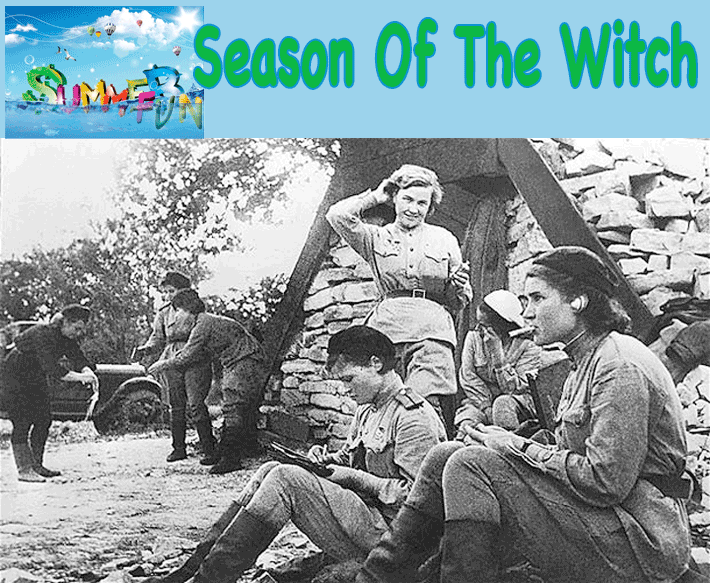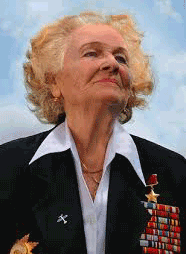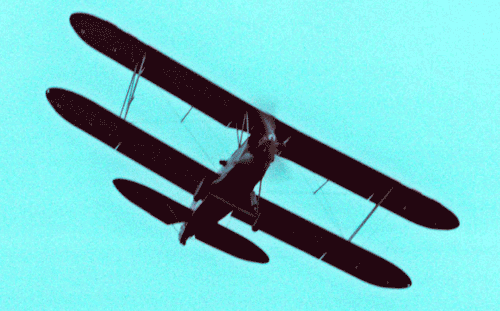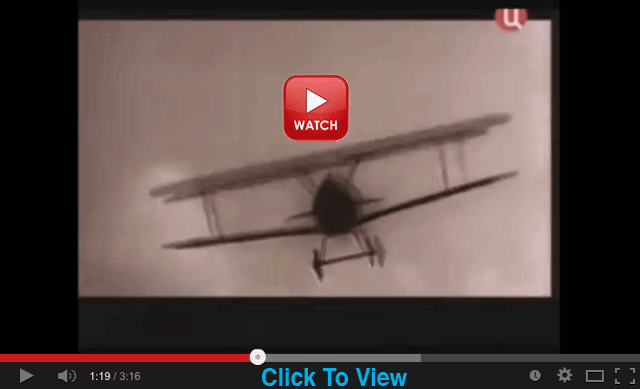
 It’s
been just six years since the world lost an important, if not one of the
most important heroes of WWII. Having passed on July 8, 2013, at the age
of 91, Russian pilot Nadezhda Popova, along with about 40 other women—“Night
Witches”—were war heroes instrumental in driving the German
army out of Russia all the way back to Germany. It’s
been just six years since the world lost an important, if not one of the
most important heroes of WWII. Having passed on July 8, 2013, at the age
of 91, Russian pilot Nadezhda Popova, along with about 40 other women—“Night
Witches”—were war heroes instrumental in driving the German
army out of Russia all the way back to Germany.
Nadezhda Popova was born on December 27,
1921, in Ukraine. At the fledgling age of fifteen and unbeknownst to her
parents, Nadezhda joined a pilot club in the Soviet Union, where females
accounted for only a quarter of the population. The Economist
called her “a wild spirit, easily bored; she loved to tango, foxtrot,
sing along to jazz. It made her feel free, which was also why at 15 she
had joined a flying club without telling her parents.”
It was that “wild spirit” that
suited her so well to life as a pilot—especially a pilot in the
588th Night Bomber regiment. Initially, Nadezhda was denied enlistment,
as all women were in Moscow. “No one in the armed services wanted
to give women the freedom to die,” she told Albert Axell, the author
of Russia’s Heroes: 1941-45 (2001). But on Wednesday, October 8,
1941, an order was issued to deploy three regiments of female pilots,
and the Nachthexen, the “Night Witches,” were born.
 So
called by the Germans because of the whistling, whooshing susurrus sound
that ushered from their plywood and canvas, two-seater, open-air Po-2
biplanes—like a witch’s broomstick cleaving the air—the
“Night Witches” completed 30,000 missions over a scant 4 years—on
Nadezhda’s busiest night, she performed 18 sorties in a single evening. So
called by the Germans because of the whistling, whooshing susurrus sound
that ushered from their plywood and canvas, two-seater, open-air Po-2
biplanes—like a witch’s broomstick cleaving the air—the
“Night Witches” completed 30,000 missions over a scant 4 years—on
Nadezhda’s busiest night, she performed 18 sorties in a single evening.
At only 19 or 20 years old—a young
woman by any definition—Nadezhda’s piloting prowess was a
thing to behold. Flipping her wood-and-fabric cropduster over, she would
dive at top speed, flying low over German searchlights, dancing her plane
(remember, her love of dance!) in a tango tease to attract the lights
while a second plane sneaked up quietly behind to drop bombs. The pilots
would then trade places and the decoy dance would begin again, this time
with Nadezhda dropping her payload.
High &
Mighty Moments Of Terror
Flying a Po-2 was not an effortless task.
Made with the same simple stuff one would use to make an easel—so
as to be invisible to radars—the Po-2 whistled perhaps a bit too
easily through the air; the open cockpits left the women exposed to the
elements, the instruments of the plane and their faces either soaked in
the rain or freezing in the bitter night air. There were no parachutes,
no radio, no radar or guns—no real hope for survival if one were
shot. And getting shot was like putting paper through a shredder, the
wings reduced to tattered confetti, the whole plane alighting like magician’s
flash paper.
Mad
Love
And yet, Nadezhda loved every minute of
it. While they weren’t outfitted to be comfortable, Po-2s were incredibly
fun to fly—highly maneuverable and stable, easy to pull out of a
spin, and with a lower maximum speed than the German Messershmitts’
stall speed, which made them more difficult to shoot down. As The
Economist reported, “Walking towards a plane, every time, [Nadezhda]
would get a knot in her stomach; every time she took off, she was thrilled
all over again.”
We forget, sometimes,
the humanity that must perform these inhuman acts; we have the habit of
conflating people with their actions. We see the 8-meter-long fuselage,
but forget the body that controls it; we remember the whispering wings
as they pass overhead, but forget the clenched hands gripping the handles.
 |
At the end of the day, Nadia
(as she was called) was also a young girl. Despite leading 852 sorties
during the war; despite sporting hair that had been lopped off (as was
standard), and donning hand-me-down men’s flight jackets, boots,
and overlarge pants, Nadia “kept a white silk blouse and a long
blue silk scarf, in case she had to make a really feminine impression,”
reported The Economist. She wore a delicate beetle brooch on
her uniform as a good luck charm.
As lead pilot in a sortie, she lost eight very good friends
in a hail of Messerschmitt fire—this, after losing her brother,
Leonid, in the first month of the war. She herself was shot out of the
sky a number of times. She endured the male military that mocked the “skirt
regiment”—she even fell in love, despite the horror of it
all, with a male fighter pilot. She read him poetry and after the war,
they married. All of this, while also dropping 23,000 tons of bombs on
the German army.
  Late
in 1942, flying so low she could hear the cheers of the Russian marines
and see the faces of the German soldiers lit up by the fire of their weapons,
Nadia dropped medicine, water, and food for the men trapped at Malaya
Zemlya. When she returned home, she found her plane riddled with 42 bullets—bullets
that also, frighteningly, pierced her map and helmet. Late
in 1942, flying so low she could hear the cheers of the Russian marines
and see the faces of the German soldiers lit up by the fire of their weapons,
Nadia dropped medicine, water, and food for the men trapped at Malaya
Zemlya. When she returned home, she found her plane riddled with 42 bullets—bullets
that also, frighteningly, pierced her map and helmet.
After the war, Nadezhda Popova was awarded
the nation’s highest honor: Hero of the Soviet Union; she also received
the Order of Lenin, the Order of Friendship, and three Orders of the Patriotic
War.
As Summer 2019 rolls along, we’d like
to take a moment to remember Nadezhda (Nadia) Popova: pilot, savior, warrior,
and woman.
Flossie Arend |



 Vol.
18 No. 44
Vol.
18 No. 44